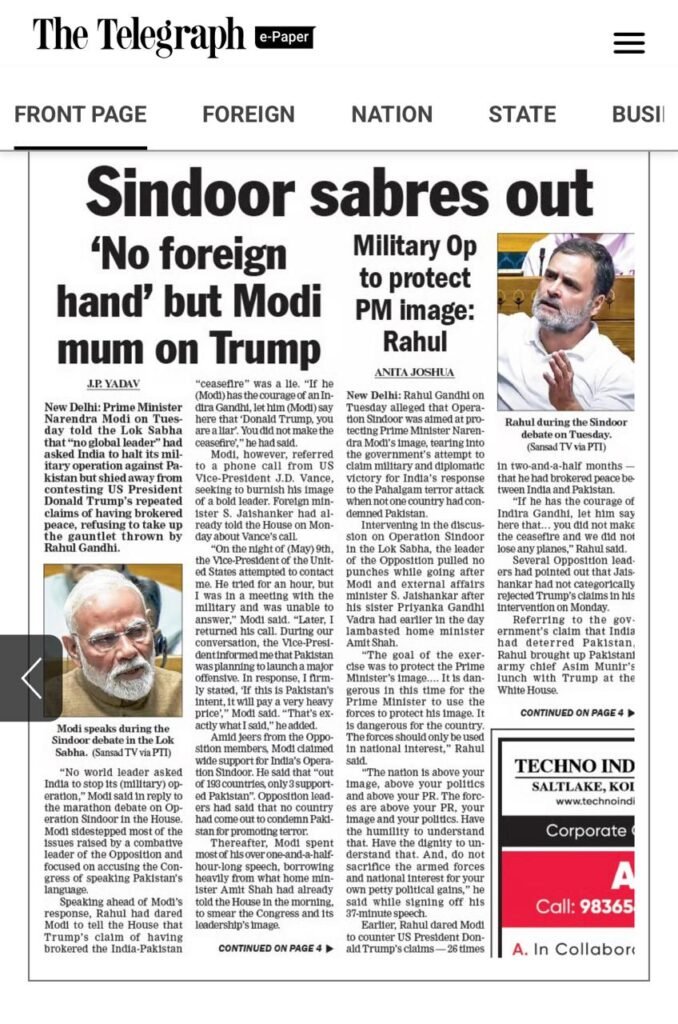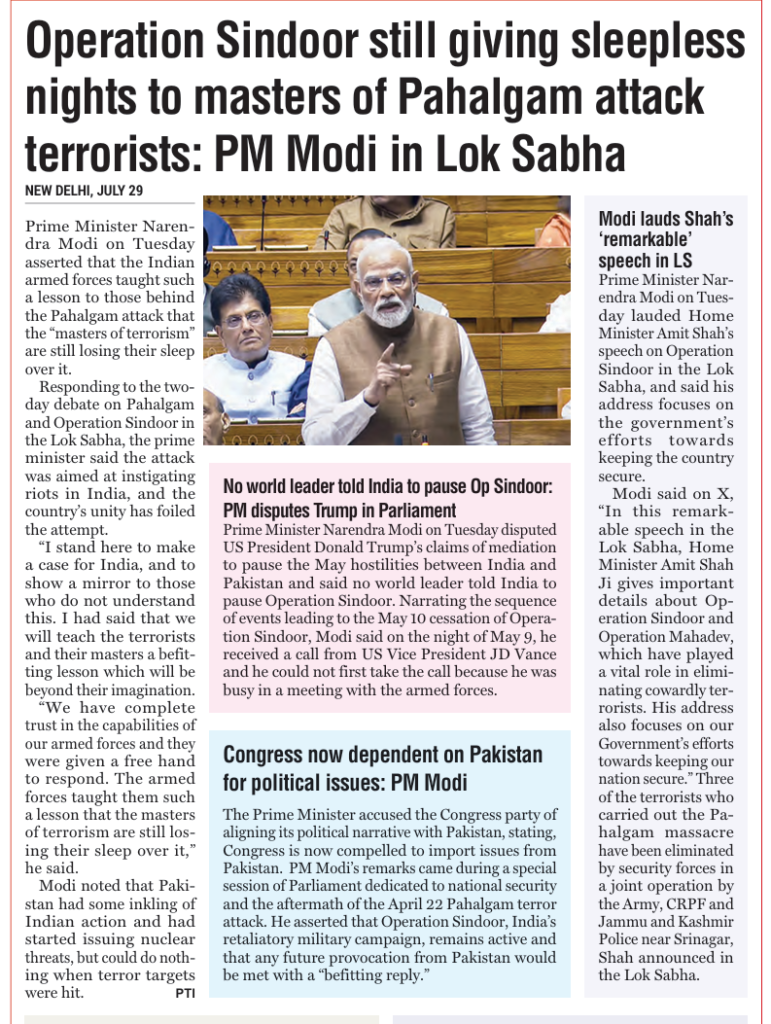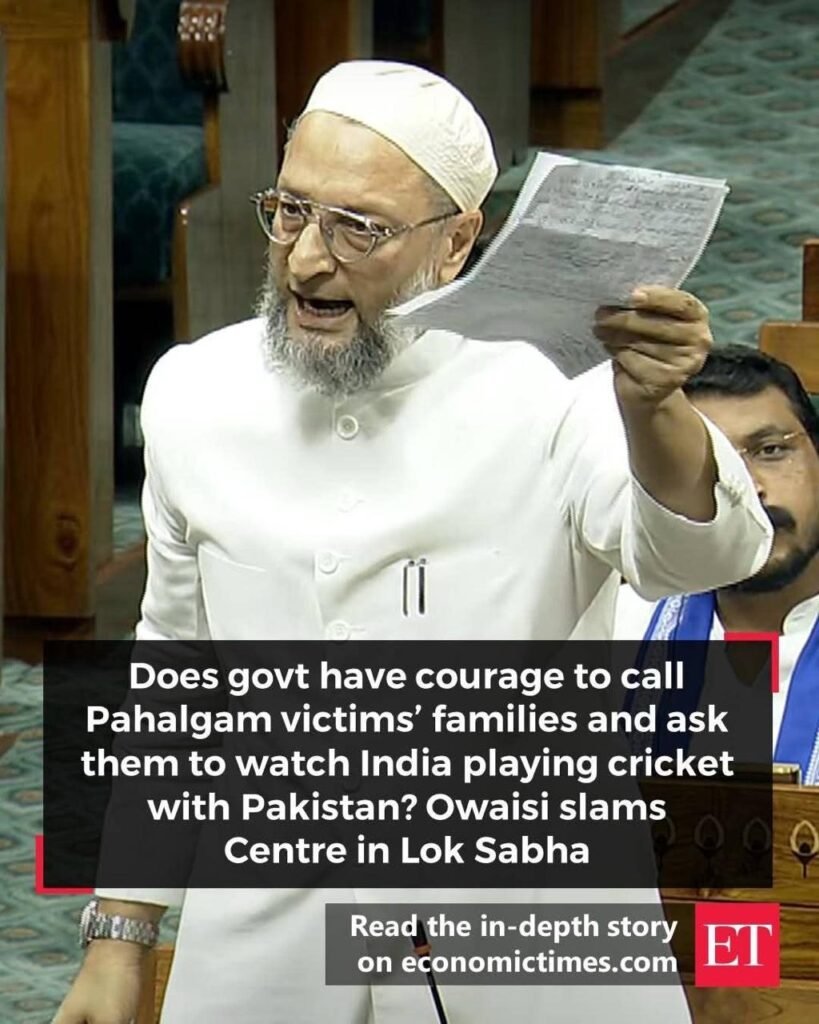Demands accountability from the highest levels of the government
Animesh Singh Tribune News Service

Congress MP Priyanka Gandhi Vadra speaks during a debate in the Lok Sabha on the Pahalgam terror attack and Operation Sindoor at the monsoon session of Parliament in New Delhi on Tuesday. PTI
Congress leader Priyanka Gandhi Vadra on Tuesday launched a sharp attack on the government in Parliament, questioning how and why the Pahalgam terror attack took place and why a popular tourist destination was left unguarded. Speaking during the Lok Sabha debate on Operation Sindoor, she demanded accountability from the highest levels of the government.
The Defence Minister spoke for an hour. Other ruling party MPs also spoke. Everything was discussed — from Operation Sindoor to terrorism, national security and history. But one topic was conspicuously skipped. On April 22, when 26 persons were killed in front of their families, how did this attack happen, and why?” she asked.
Priyanka pointed out that the government had repeatedly claimed that terrorism had been eradicated from Kashmir and had been actively encouraging tourism in the Valley. “Why wasn’t a single soldier deployed there? Did the government not know that 1,000 to 1,500 people visit the area daily? There was no security, no first aid. These people went there ‘sarkaar bharose’ (trusting the government), and the government left them ‘bhagwan bharose’ (to God’s mercy),” she said.
She questioned whether the Prime Minister, the Defence Minister, the Home Minister and the National Security Adviser (NSA) were not responsible for ensuring the safety of citizens. Citing data, she said The Resistance Front (TRF) —the terror outfit that claimed responsibility for the Pahalgam attack — was declared a terrorist organisation three years after its formation in 2019, despite being involved in 22 terror incidents between 2020 and 2025, including the Reasi attack.
“The ruling party claims they were aware of all this, yet not a single agency got wind of the planning of this heinous attack. Isn’t that a complete failure of our security apparatus?” she said.
R
Drawing a parallel with the 26/11 Mumbai attacks, Priyanka said, “They talk about 2008 and say the Manmohan Singh government did nothing. But all terrorists, except one, were neutralised that day. The one who survived was hanged in 2012. The Maharashtra Chief Minister resigned, the Home Minister resigned. That was accountability.”
“If our country is attacked, every member in this House will stand with you. We’re proud of our armed forces. But while the Prime Minister is eager to claim credit for Operation Sindoor, leadership is not just about taking credit—it is also about accepting responsibility,” she said.
Priyanka concluded her speech by solemnly reading out the names of all 26 victims killed in the Pahalgam attack.









































































